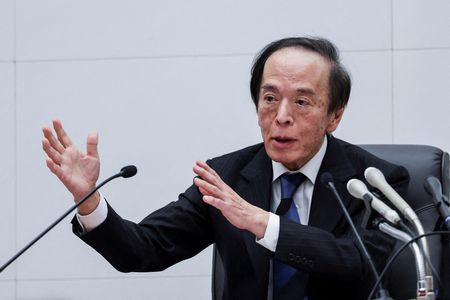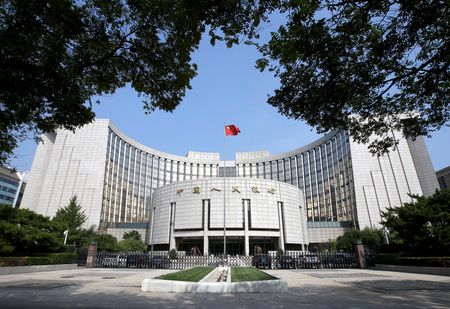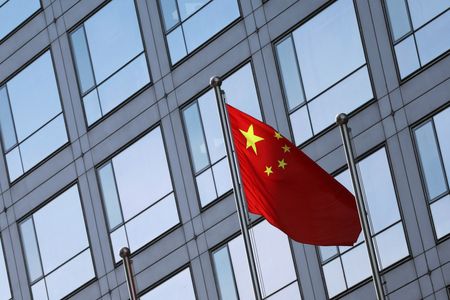By Makiko Yamazaki
BANFF, Alberta (Reuters) -Bank of Japan Governor Kazuo Ueda said on Thursday the central bank will closely monitor market moves as yields on super-long Japanese government bonds (JGB) reached record highs this week.
“I would decline to comment specifically on short-term developments of interest rates, but of course we will continue to monitor the market carefully,” he told a news conference after attending meetings of finance leaders from the Group of Seven major economies.
Asked about uncertainties stemming from U.S. tariff policies, Ueda acknowledged some progress in trade negotiations between the U.S. and China, as well as the U.S. and Britain.
“But the outlook of the tariff policies remains highly uncertain, and regardless of how the policies will settle, extremely high uncertainties will stay over how they will impact the economy,” Ueda said.
“We’ll be in the phase where we must examine data. That’s how I see it, and shared by many of the (G7) participants,” he added.
Fears of a Trump-induced global slowdown have forced the BOJ to sharply cut its growth forecasts at its April 30-May 1 policy meeting, and cast doubt on its view that sustained wage hikes will underpin consumption and the broader economy.
While diminishing prospects of a near-term rate hike have kept shorter-term yields stable, those on 30-year and 40-year JGBs soared to all-time highs this week amid calls from politicians for big fiscal spending.
The spike in yields comes at a delicate time for the BOJ, which will review next month an existing taper programme running through March, and come up with a plan for the next fiscal year and beyond.
Worries also linger over the U.S. fiscal outlook and demand for government debt. The U.S. House of Representatives narrowly passed President Donald Trump’s tax bill, adding to worries about the country’s debt load.
In the joint conference with Ueda, Japanese Finance Minister Katsunobu Kato said there were comments at the G7 meetings pointing to the need to ensure fiscal health.
The G7 communique adopted on Thursday cited high public debt and increasing fiscal pressures, saying that raising long-term growth potential is essential to manage risks to fiscal sustainability.
On foreign exchange issues, Kato said there were no discussions beyond what was agreed in the communique, which said the G7 reaffirmed existing commitments that exchange rates should be set by markets, and that excessive volatility in currency moves would hurt economic stability.
(Reporting by Makiko Yamazaki; Editing by Alistair Bell and Jacqueline Wong)











